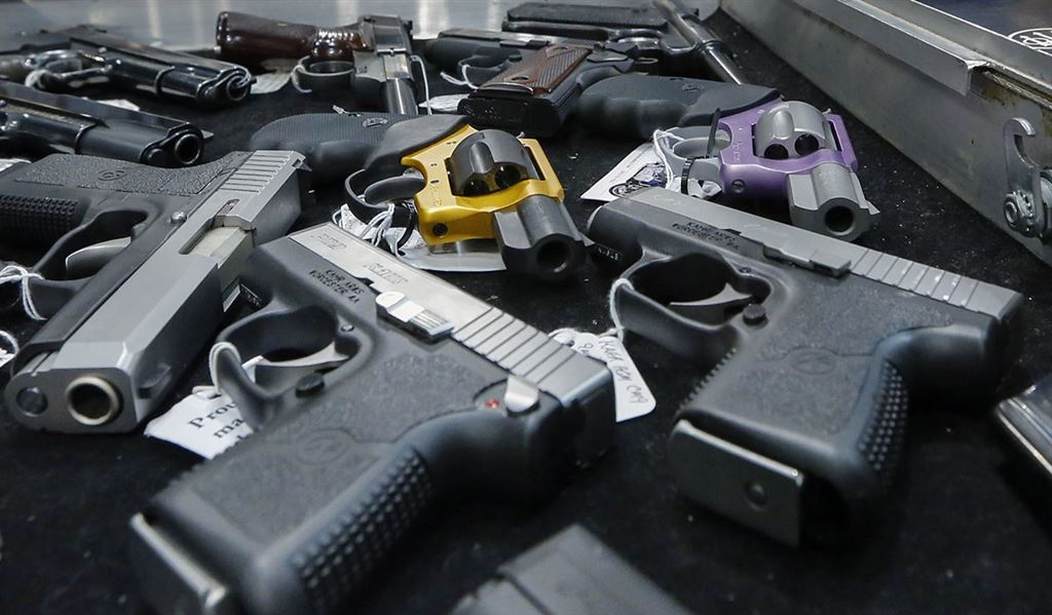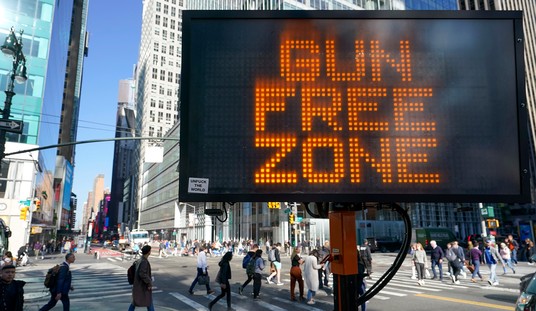Anyone with eyes and/or ears is aware there has been a major surge in violent crime following the riots in 2020. While things were going along swimmingly before, the riots seemed to spark off all kinds of ugliness.
It’s no surprise that someone at CNN would try to take advantage of this to advance their preferred narrative, namely one of gun control.
However, contrary to fearmongering from politicians and press, American cities are not experiencing record crime rates. Crime rates, including national homicide rates, remain well below where they were in the 1980s and 1990s, according to FBI data. But that’s a very low bar. The United States was already an exceptionally violent and deadly place for a wealthy, developed country, largely thanks to extremely lax gun laws that are one reason our violent death rate is many times higher than that of our economic peers. And it’s true that homicide rates are increasing at a stunning rate, even if property crimes are less common than they once were — and some cities, from Philadelphia to Tucson, Arizona — did see record homicide rates last year.
hen it comes to our current crime trends, two things are true: Deadly violence isn’t as pervasive as it was 20 years ago, but homicide numbers are rising in many major American cities.We should not collectively live in fear of deadly violence — and we shouldn’t wait to hit all-time crime highs before we act. But to decrease rates of violent crime, we have to do more than simply police. (And for the record, no, the “defund the police” movement is not behind rising crime rates. For all the inflamed rhetoric, most police forces were not actually defunded.) We need better gun laws, a more equal society, and certainly better social services for those who are struggling.One thing that is clear from the data is that guns drive American violence. The uptick in homicides during the pandemic, for example, might not be about a lack of policing so much as about the fact that more people are carrying guns around. But many of the same conservatives who fret about violent crime and critiques of American policing refuse to budge on the one policy that has been proven to make a significant difference in homicide rates everywhere in the world: Gun regulations.
Well, that’s about the stupidest thing I’ve read in a while.
The author, Jill Filopovich, has said some pretty dumb things in the past, to be sure. The only reason I haven’t addressed her here was because they weren’t about guns. So, I talked about them elsewhere.
So what’s so wrong with Filipovich’s comments?
Well, let’s start with the assertion that “Defund the Police” had no impact on violent crime. While relatively few departments may have been defunded, the rhetoric had an impact on officer morale. It also served as a warning that any action by police that could be labeled as problematic would be labeled as problematic. So, officers backed off, covering themselves. That gave criminals opportunities.
As for loose gun regulations being the problem, I’d invite Filipovich to look at the gun laws before the violent crime surge and after.
What you’ll see is little to no change. There’s been no weakening of gun laws at the federal level and while some states have repealed gun control laws, other states have added them. Yet violent crime has surged everywhere.
In fact, we saw homicides drop in Dallas as well as in Miami, both in pro-gun states, while they hit high in Los Angeles and in Chicago. If Filipovich’s supposition is accurate, wouldn’t we see the opposite?
But we don’t.
That’s because gun control doesn’t actually impact criminals. Even if it worked as advertised, it wouldn’t impact them directly, but it doesn’t actually have much impact on them at all. Instead, it just hurt law-abiding citizens and no one else.
So, whether there are strict or loose gun laws is pretty much irrelevant. Instead, we should be looking deeper.
Unfortunately, I don’t think Filipovich is capable of such thinking.
Or any, really.







